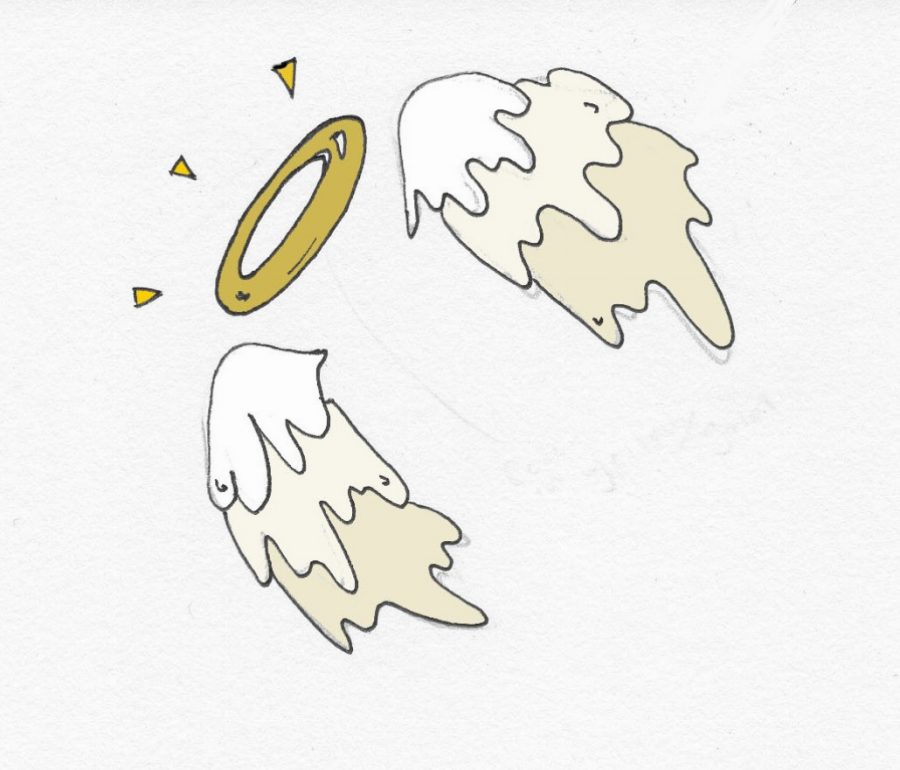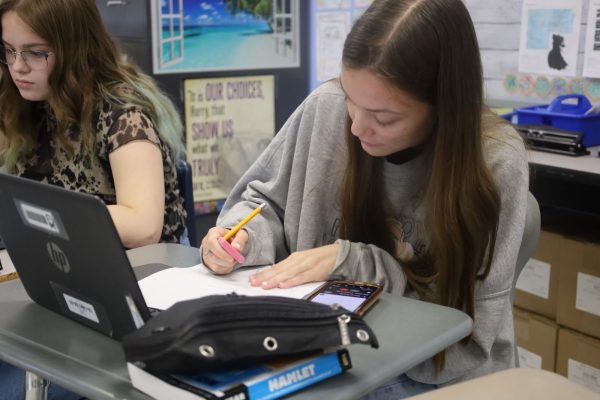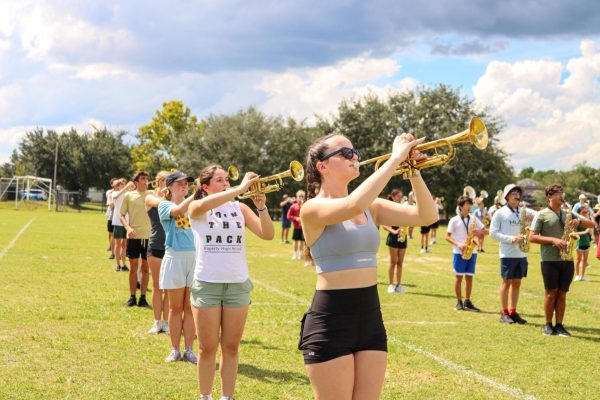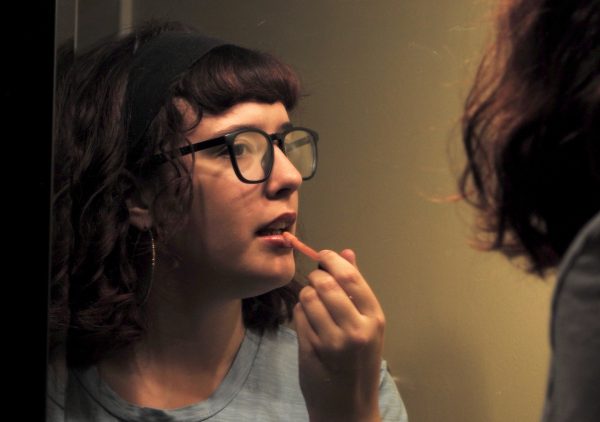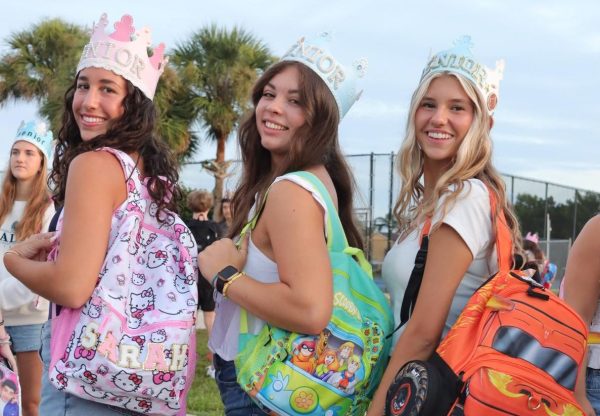Rise above the storm
For students who have made severe disciplinary mistakes, making positive changes proves to be a difficult yet rewarding challenge
photo by Andrea Izaguirre
Students coming back from Journeys are grateful to their family and to the school for helping them improve certain behavioral issues. Junior Elijah Konz found that the non-strict environment at Journeys was beneficial.
Strong arm robbery and possession of over 20 grams of marijuana were the main charges made against junior Elijah Konz after he fought with another student . Konz was immediately expelled and transferred to Journeys Academy. He would later spend 65 days in a juvenile detention center.
While still suspended temporarily, the process Konz went through was arduous and long. The change to Journeys was stressful as well as serving legal time.
Journeys, a school primarily focused on improvement of behavior, uses a “unique setting [that] allows for students to build relationships that lead to academic and social progress,” according to its mission statement. Students who attend must complete orientation for three days rather than starting classes immediately.
“This is a place of opportunity, with mutual respect through building positive relationships. We believe in focusing on social and emotional learning, as well as restorative practices,” principal Kenneth Bevan Jr. said.
At Journeys, the dynamic between teachers and students was different compared to that of a regular school. Students had more freedom to express emotions, primarily anger as they saw fit.
“The students had the right to get mad at whatever they wanted,” senior Jack Smith* said. “The environment is more acceptable for students to get mad and throw fits and stuff and the teachers do not have as much rights as they do here [Hagerty].”
Smith spent eighth grade partially at Journeys Academy. Expelled after a knife was found in his backpack, he feels that the climate at Journeys was less strict but more aggressive. However, the aggression and violence found in the halls of Journeys was beneficial; they posed as red flags to his social instincts and intuition.
“Journeys is kind of separated into the good kids who made mistakes, and then there are the kids who are actually bad,” Smith said. “I learned when to keep my head down, when to stay away and what to avoid, but I also knew what to stand up for because there are kids at Journeys who did not stand up for anything and got bullied and pushed around.”
Konz shared similar sentiments about Journeys and the juvenile detention center. There, he was unable to see friends and family regularly and had a limited diet. Konz felt compelled to fight others in the program who tried to steal the little possessions he had or his food.
“It surrounded me with people who are worse and it has influenced me to do bad things but also good because I had time to reflect and noticed I needed to do something bigger with my life and not be in and out of the system,” Konz said.
He justified getting into fights and ensuing violence, because it prevented him from appearing weak and being manipulated and “extorted” by others.
Junior John Doe*, expelled for bringing a weapon into school as well as arrested for fighting in sophomore year of high school, found that unlike the juvenile detention center program, fights were for the most part, voluntary at Journeys. Doe describes them almost as a recreational activity, another way students socialized.
Doe feels the emphasis on social interactions over academics at Journeys was why his behavior changed for the better. The difference and diversity found among the students allowed Doe a chance to talk and interact with different types of people, making it easier to communicate.
“I kind of had a behavior problem. It was a good learning experience. It taught me how to interact with people from different environments. The skills I learned there are still applicable today,” Doe said.
Learning when the right time and who the right person to say something to were just some of the aforementioned skills acquired, along with being able to choose his battles when it comes to teasing and quips made at his expense.
While the correctional programs proved better than regular school in some ways, there were negative aspects that students feel are unfair. A common grievance students who have participated in these programs have is the extremity of their punishments.
Both Smith and Doe maintain that their possession of a weapon on campus was an accident and that administration needed to take more of their side into account.
Konz’s time at the juvenile detention center was especially difficult for him. There was no permanent date for release, which put him under stress. One of his only sources of happiness was seeing his mom, who was present at all visitations.
“I’m just a kid, and I make stupid mistakes, and it made me fall behind in school,” Konz said.
Racial disparities were also an issue for Doe at Journeys. Students would use the difference of skin color as a way to antagonize Doe.
“The hard aspect; it is a predominantly African-American school and being one of the white kids there, you are obviously picked on. They called you “white boy,” and they picked on you a little bit,” Doe said.
Along with hardships faced away from home, students struggled with keeping up with friends and family. Doe was unable to see his friends for most of the week, as the hours at Journeys combined with the long bus ride took away a lot of his free time.
Smith was initially scared of how his parents would react. After his incident at the school, he spent hours waiting for the news to reach them.
“My parents; I was scared my parents were going to kick the crap out of me,” Smith said.
While the emotionally-charged process of transferring into Journeys was not an enjoyable period of time in Smith’s life, he found that Journeys was therapeutic and necessary for his later success.
“Journeys was an experience that I think I needed,” Smith said.
The reaction of Doe’s friends and family were anticipated; Doe knew that they were going to be greatly upset. Disappointment was the main emotion felt and the rest of Doe’s year was “screwed up really bad.”
While acknowledging his faults, Konz has no regrets and would not change his past. The changes have had a significant impact on his life; Konz does not smoke any more and is drug tested twice a week by his parole officer.
“I feel like it has made me a stronger person mentally and physically. I’m mentally stronger because I know I can maintain [stay calm] while going through situations that are uncomfortable,” Konz said.
*Names have been changed
Your donation will support the student journalists of Hagerty High School. We are an ad-free publication, and your contribution helps us publish six issues of the BluePrint and cover our annual website hosting costs. Thank you so much!


